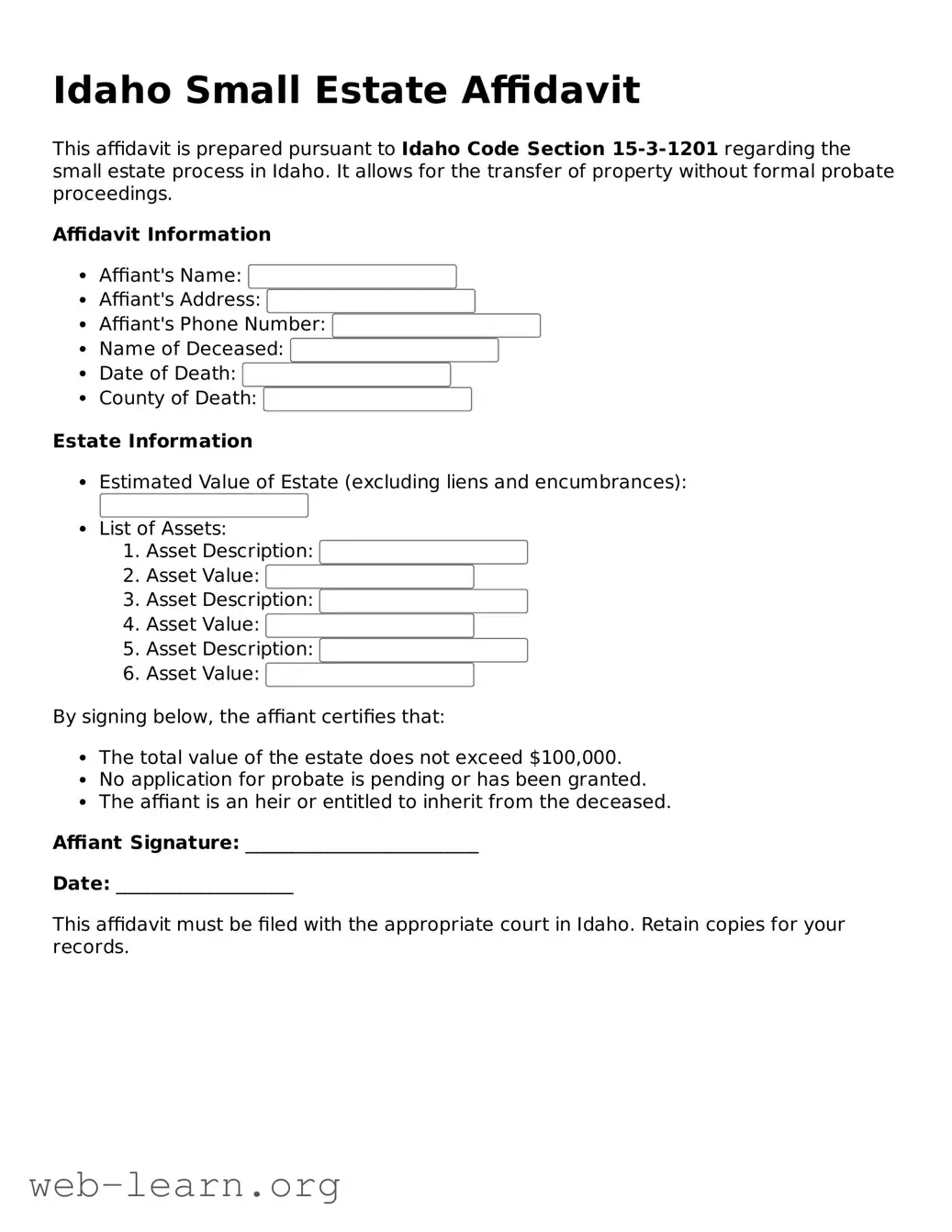The Idaho Small Estate Affidavit form serves as a crucial tool for individuals seeking to efficiently navigate the probate process in situations where the estate in question is relatively modest in value. This form allows certain heirs or beneficiaries to claim property without undergoing the lengthy and often costly probate proceedings. Primarily designed for estates valued under a specified threshold, typically set at $100,000 in real property and $25,000 in personal property, the form streamlines the transfer of assets to those entitled to inherit them. Importantly, when using this affidavit, the named individual must be able to demonstrate their legal standing as a rightful beneficiary of the estate, thus reinforcing the importance of proper documentation. Moreover, the affidavit requires specific information, including a detailed list of the decedent's property, its estimated value, and the identity of all beneficiaries. By adhering to the requirements outlined in Idaho law, individuals can facilitate a more straightforward process during an already challenging time, allowing for the disposition of assets in a manner that respects both the decedent’s wishes and the interests of the heirs.
